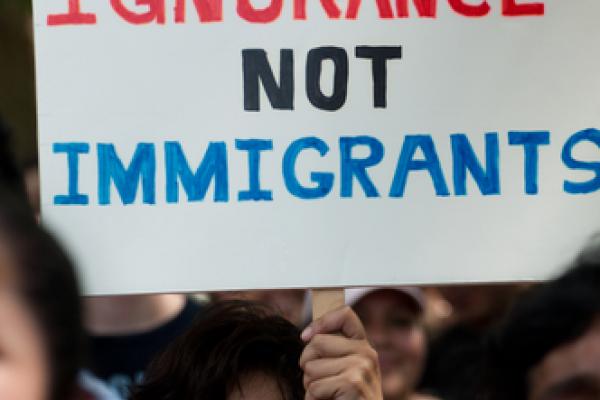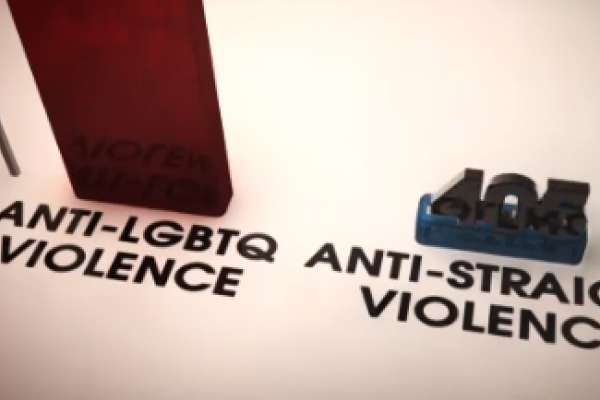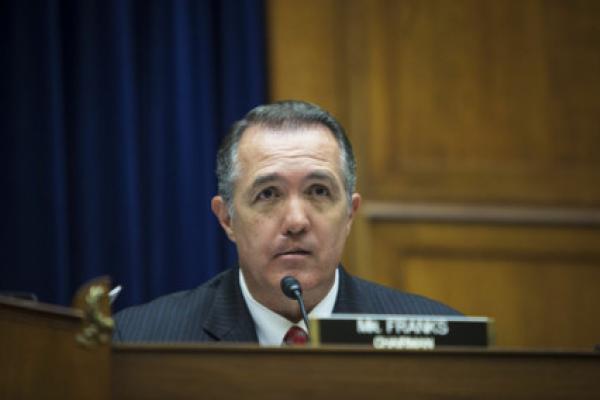People of faith and immigration activists around the country have their eyes fixed on Congress this month as both houses take up immigration reform. The bipartisan proposal being considered in the Senate would bring hope and opportunity to 11 million new Americans who aspire to be citizens, doing much to fix our broken immigration system.
While the path forward will be difficult, there is some good news this week that will influence the way policymakers think about this issue.
Conservative lawmakers have long been worried about the future costs of immigration reform, which they predicted would come from federal programs designed to help the poor such as Medicaid. They asked the Congressional Budget Office – a non-partisan government agency tasked with evaluating the cost of all legislative proposals – to give them a report far into the future to make sure that these costs were not hidden in their analysis.
In reality, the CBO found that bipartisan immigration reform in the Senate would trim nearly $1 trillion off the federal deficit, while spurring the economy and creating jobs.
They have many labels. Undocumented immigrants. Illegal Immigrants. Illegal Aliens. Wetbacks. Jan Brewer, the governor of Arizona, recently suggested that most of them are “drug mules.” Some have even called them “terrorists.” But few are known by their real names or treated as people with real lives.
Most of them live at the edges of the society, under inhumane and dangerous conditions, often separated from their loved ones. For some it may be a choice. However, a vast majority of the 11 million undocumented immigrants in the U.S. are driven to such extremes by factors beyond their control — political crisis, drug-related violence, famine, or eviction from their own homes at gunpoint. Theirs is a story of displacement, of being forced to flee their homes and take risks few would under normal circumstances. They are victims, not the offenders they are often made out to be. Still, for many, it is a story of being treated by the border security as violent criminals, being stripped of their clothes and dignity and separated from their families and traumatized in detention centers. It is also a story of ostracizing and exploitation by parts of the society. The labels and stereotypes about them “otherize” them in ways that prevent their full participation in the society. Injustices like these are the reason why NETWORK’s Nuns On The Bus have been touring across the country speaking out for immigration reform.
After denials and evasions, we learned that two successive administrations lied to the American public about unprecedented spying on ordinary citizens.
The latest phase of this longtime spying effort began shortly after 9/11 and accelerated steadily, as the government used existing laws and newly passed laws to demand access to supposedly private information, such as cell phone call logs and email data.
It might have begun as an effort to track foreign terrorists as they interacted with allies in the U.S. and visited the U.S. But it spun out of control as the National Security Agency decided it needed to spy on all citizens.
Daily Show correspondent Samantha Bee's latest segment for the late-night comedy show took on the perception in some religious circles that Christians are the ones being targeted by the LGBT community. She sits down with pastor and Christian radio-show host Matt Slick to explore his fear of infringement of his religious liberty.
"At what point has your right to express yourself been infringed upon?" Bee asked in the interview.
Slick's response: "I don't know if it's going to happen, but I'm concerned about it. I have a radio show. I'm just concerned about any oppression that may come, that people might say, 'Matt, you can say that on the radio, that homosexuality is a sin.'"
For the first time, the federal government has issued written guidelines for houses of worship that are confronted with a homicidal gunman.
Vice President Joe Biden released the new rules on Tuesday, six months after the school shooting in Newtown, Conn., that left 26 dead, including 20 children.
Beyond seeking shelter and waiting for police to arrive, as many Newtown victims did, the new rules also advise adults in congregations to fight back — as a last resort — in a bid to stop the shooter. The new federal doctrine is “run, hide or fight.”
As the House debates a bill to limit abortion, Republicans are reopening a subject that cost them dearly in 2012 and continues to present perils for the party’s attempt to appeal to women voters.
Even before the full House took up the bill Tuesday to ban abortion after 20 weeks of pregnancy, Republicans had a sharp reminder of how sensitive the issue can be when Rep. Trent Franks, R-Ariz., appeared to say that rape rarely results in pregnancy.
“The incidence of rape resulting in pregnancy [is] very low,” Franks said at a June 12 committee hearing on the bill. Franks later said he meant that third-trimester abortions of pregnancies caused by rape are rare.
"Obamacare" continues to be at the forefront of our nation’s health care epidemic. A recent report from PwC shows falling numbers within the system that are due to affect the overall cost of health care policies next year. Despite PwC’s report that the costs of health care are lower than years prior, critics claim that costs still aren’t where they need to be. The Associated Press reports:
For years U.S. health care spending has grown much faster than the overall economy and workers' wages, but since the recession those annual increases have slowed dramatically. The debate now is whether that's a continuing trend. The answer will be vitally important, not only for companies and their employees, but for taxpayers who foot the bill for government programs such as Medicare, Medicaid and Obama's coverage expansion
Read more here.





